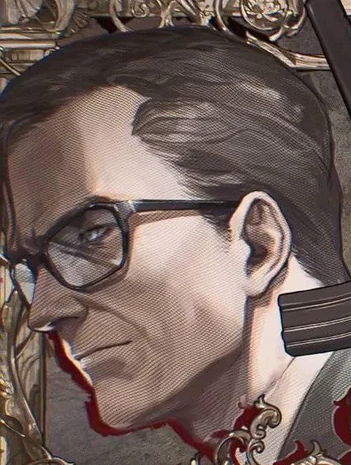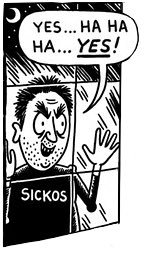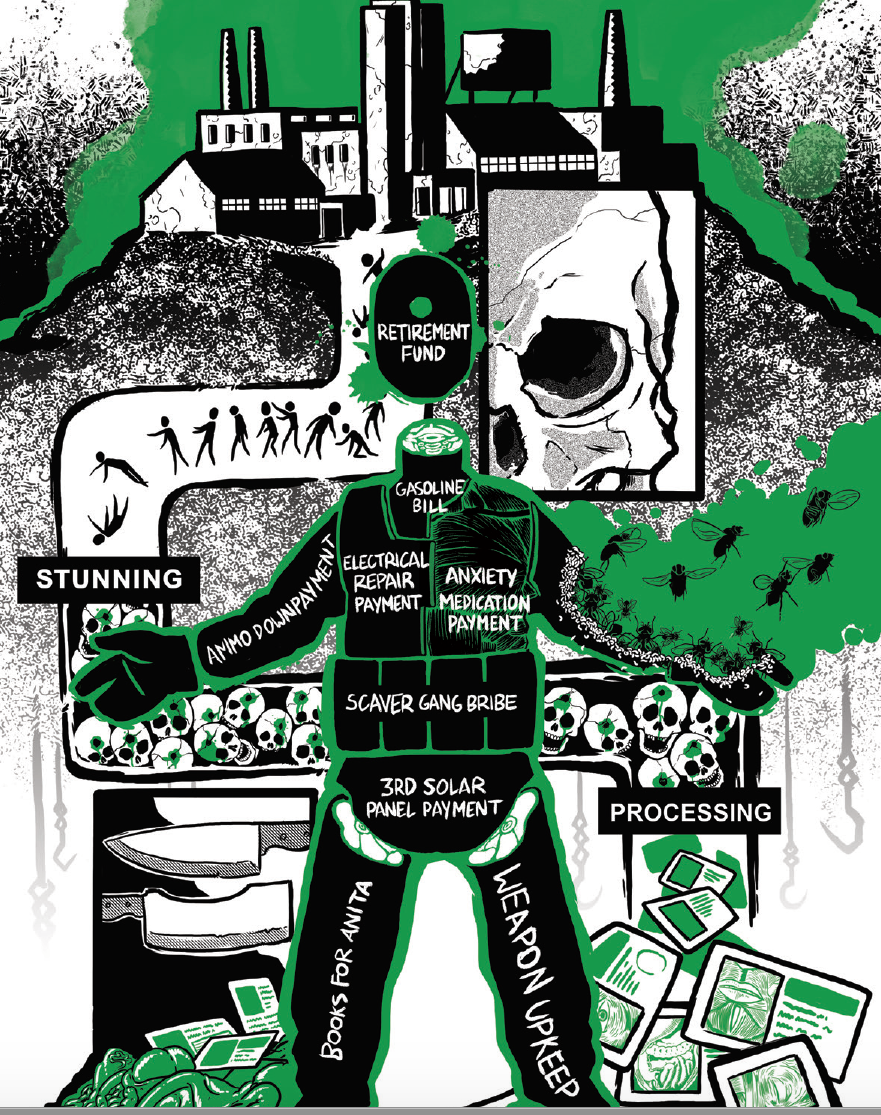Feeding an entire generation into a meat grinder in Flanders because line must go up.
I'm about halfway through imperialism the highest stage of capitalism and it completely broke my brain that WWI was just monopolies needing to carve up other nations for money. Not that an oopsie occured due to alliances and things just got out of hand.
The Great War was your standard imperialist war, but instead of picking on defenseless nations, the imperialists set on each other.
Politicians like Otto von Bismarck knew that they must not fight among themselves and tried to keep the peace, but stony-hearted sociopaths like Wilhelm II would have no part in it and would never be happy unless they could read about their pissing matches in the newspapers.
It was a little bit an oopsie as none of them anticipated the war getting as out of hand as it did. What upset the apple cart was German midwar discovery of the haber process which allowed them to continue manufacturing explosives and fertiliser long after the other powers had projected they would run out of nitrates
Wasn't that Haber also jewish, and his work would later be used to make Zyklon B? Or am I thinking of a different German chemist who contributed heavily to the war effort in WWI and then had most of his family sent to Dachau?
yeah but part of his contribution to the war effort was the invention of chemical warfare so he's still a controversial figure
fun fact: so disillusioned with her husband's zeal for using science to contribute to the war effort, his wife killed herself with his service weapon.
I don't think they were trying to carve up Germany as much as they were fighting for dominance of the colonial markets. The French had been alarmed by recent German industrial buildup and wanted to seize the moment while they still had comparable militarys to push Germany back down. The British had a long standing policy of sabotaging any other European power they saw as getting too powerful as well.
Germany by contrast was begining to resent it's own lack of colonial holdings
i think the ability for capital to snuff out human life without masses of people having to experience that visceral horror is what makes the current decline interesting. no one wants to break that ice (understandably) but not even us comrades can imagine voluntarily subjecting ourselves to that level of psychic trauma.
Honestly it's because we all know (or somewhat know) that capital and capitalists are monsters and would put dissidents in gas chambers if able, the rest of the working classes also know this to a subconscious degree and will even express this via perceptions of how evil elites can be (whether conspiracy theory territory or not and just being credible claims). Once the glass does break though and gloves come off is when both sides understand that only one will come out of the conflict alive.
Remembering that the causes of that war were about European empires trying to carve up Germany because capital had reached its zenith under the pre-war status quo unless it acquired new markets and territories to expand into was just eye-opening
does the movie attempt to show this?
It's pretty wild listening to libs whine about "sovereignty" and "self determination" regarding Ukraine given, like... everything that has happened in the 21st century.
versailles wasnt that harsh, germany's impoverishment was self sabotage by the weimar government to dodge paying reparations.
If I remember the book, and it's been twenty years so bear with me, it's really about the experiences of a half dozen teenagers and how much of a completely senseless, horrific, unmitigated, and unjustifiable nightmare war is.
I'll never forgive the Second International for the complete betrayal of the working class. The Russian SDLP and the Socialist Party of America where the only ones I can think of at the top of my head that didn't betray the working class.
Gutwrenching account in english by a WW1 German vet about killing a man. This thing never ceases to make me ball https://www.facebook.com/watch/?v=2394333157460686
Saw the announcement and got excited, my history teacher in highschool tried to show us the original silent movie,
I didn't know it was originally a book
Its fine, but it's largely a cute gimmick ("single" take) that's lit incredibly well. There's one scene that is absolutely jaw dropping from a technical perspective but it's mostly just war slop
The black and white one also holds up,
I'm not really into black and white movies because the way the actors talk sort of annoys me, but that one was good enough for me to get over it.
How closely does it adhere to the book? Because the book spends a great deal of time humanizing the Germans, and anyone who sympathizes with the Germans is widely viewed a closeted nazi sympathizer. Yes, sure, you can claim the imperial Germans are different, good for you, have a cookie.
in WW1 everyone was basically as bad as each other WW1 Germany was genuinely not any worse than any other European power.
It's just a major red flag to be super into German military history by association. Similar to how it's dodgy to be super into indian symbology specifically swastikas we all know what you're doing there
humanizing the Germans
I mean, in so far as detailing the experiences of a bunch of 17 and 18 year old children condemned to die in Hell for the glory of Capitalism is "Humanizing the Germans".











